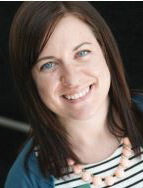How to respectfully react to suicide
 It is difficult to know how to react when we learn that someone has died, whether it’s someone we know or a celebrity, but how we react can have an impact on those around us.
It is difficult to know how to react when we learn that someone has died, whether it’s someone we know or a celebrity, but how we react can have an impact on those around us.
This is especially true when we are talking about traumatic death such as suicide. I lost my brother to suicide in 2012 and was overwhelmed by the number of inappropriate questions and responses I received regarding his death. I tried then and I try now to give people the benefit of the doubt, knowing that they are most likely not trying to be malicious but lack education in what is appropriate to say to someone grieving and what is inappropriate or even harmful to say.
Based on my personal experience as well as my work in mental health promotion and suicide prevention, I have put together a short list of recommendations for how to react or respond when you learn of a suicide.
Everyone is different and their grieving process will be unique, therefore people may disagree on what is appropriate versus inappropriate. Use your best judgment.
Please do not say that someone “committed” suicide. The word commit has criminal connotations and we now know that suicide is not a crime, it is often the tragic result of mental illness. People who have lost loved ones to suicide already feel the stigma around the way their loved one died and insinuating (even unintentionally) that this act was anything but the result of a deadly disease can compound the grief experience. Instead, the appropriate language to use is that someone “took their life” or “died by suicide” or you can even say that someone “lost their battle to mental illness” in the way we often describe cancer deaths. This is more respectful of both those grieving and the person who passed.
Do not ask about the method the person used to end their life. I understand that people are curious, especially about death, but this is inappropriate. This information is incredibly personal to the loved ones of the deceased and it should only be brought up if they choose to disclose it. I was so traumatized by the method my brother used to end his life that I couldn’t bring myself to say it for years. When people, even friends, would flippantly ask me “how he did it” I was appalled and felt retraumatized. Even today, I do not like to share this information because my brother is so much more than the way he died. I believe in honoring him by focusing on his life and the good he did in the world, not the way his life ended.
On the same note, when there is a celebrity or high-profile suicide and the method used is disclosed, don’t share this information on social media and even be aware of mentioning it in public spaces. For one, it is disrespectful to that person’s loved ones (even if you don’t know them) but it can also be traumatic for individuals who have lost loved ones to suicide, struggle with suicide ideation or have attempted suicides themselves. According to a USA Today article regarding the irresponsible news coverage of Kate Spade’s death, “Mental health experts say exposure to media coverage of a high-profile suicide, especially coverage which fixates on the gratuitous details of a person’s death, can lead to more suicides. It’s called ‘suicide contagion.’ ” https://www.usatoday.com/story/news/2018/06/06/kate-spades-death-and-suicide-contagion-how-media-got-wrong-again/678314002/
Never offer platitudes like “everything happens for a reason”, “God has a plan” or “they are in a better place.” It is natural to want to “fix” situations where people are hurting, however, grief is an experience full of pain (and a whole lot of other emotions) that cannot be mitigated with a simple statement. At best, these types of sentiments minimize the grief experience and at worst they are harmful to the mental health and can intensify the grief of survivors of suicide loss. Even if you truly believe that everything happens for a reason or that their loved one is in a better place, there is no need to share that with someone whose world just caved in on itself. It is very hard to find meaning in early grief, don’t make it any harder.
It’s okay not to know what to say.
Sometimes people wind up putting their foot in their mouth simply because they aren’t sure what the right response to someone grieving is. Don’t be afraid to express that you aren’t sure what to say but follow it up with “but I’m here for you” or “I am so sorry.” Those simple words can be incredibly reassuring in a time when predictability has been all but taken from a person. If you need more advice on what to say (or what not to say) the Huffington Post has suggestions about this topic: https://www.huffingtonpost.com/entry/what-to-say-to-someone-who-is-grieving_us_5a946a4be4b01f65f599365a
If you or someone you know is struggling with mental illness, suicide ideation or suicide attempts and you would like to speak to a therapist, contact Jewish Family Services by calling 913-327-8250 or visiting www.jfskc.org. Also, visit www.itsok.us to view resources on mental health and suicide prevention. If you have lost a loved one to suicide, visit http://www.sass-mokan.com/ for extensive resources for suicide loss survivors. Sarah Link Ferguson is JFS Mental Health Coalition coordinator.



 Our beloved Israel, the democratic homeland of the Jewish people, lacks a constitution. Instead, Israel has 11 Basic Laws, meant to lay the groundwork for a future constitution. It also has a Declaration of Independence, which has been used by Israel’s Supreme Court as a guidepost for Israel’s fundamental values.
Our beloved Israel, the democratic homeland of the Jewish people, lacks a constitution. Instead, Israel has 11 Basic Laws, meant to lay the groundwork for a future constitution. It also has a Declaration of Independence, which has been used by Israel’s Supreme Court as a guidepost for Israel’s fundamental values.  V’yichazak lev paroh. “And Pharaoh’s heart grew hard.” In the story of Passover, as the people of the land of Mitzrayim suffer through 10 plagues, their leader grows more callous. Over and over he has the opportunity to soften his heart and avert the next calamity, but instead he allows his heart to grow hard and ensures further suffering. In this particular moment of history, I wonder: How have our own hearts grown hard toward the people in Gaza?
V’yichazak lev paroh. “And Pharaoh’s heart grew hard.” In the story of Passover, as the people of the land of Mitzrayim suffer through 10 plagues, their leader grows more callous. Over and over he has the opportunity to soften his heart and avert the next calamity, but instead he allows his heart to grow hard and ensures further suffering. In this particular moment of history, I wonder: How have our own hearts grown hard toward the people in Gaza?